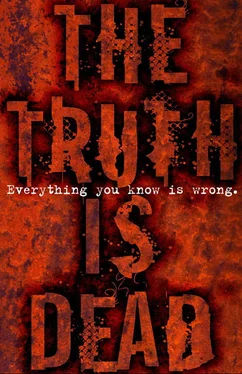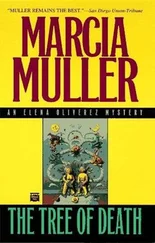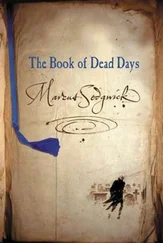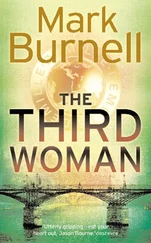Marcus Sedgwick - The Truth is Dead
Здесь есть возможность читать онлайн «Marcus Sedgwick - The Truth is Dead» весь текст электронной книги совершенно бесплатно (целиком полную версию без сокращений). В некоторых случаях можно слушать аудио, скачать через торрент в формате fb2 и присутствует краткое содержание. Город: London, Год выпуска: 2011, ISBN: 2011, Издательство: Walker Books Ltd, Жанр: Альтернативная история, на английском языке. Описание произведения, (предисловие) а так же отзывы посетителей доступны на портале библиотеки ЛибКат.
- Название:The Truth is Dead
- Автор:
- Издательство:Walker Books Ltd
- Жанр:
- Год:2011
- Город:London
- ISBN:9781406339444
- Рейтинг книги:5 / 5. Голосов: 1
-
Избранное:Добавить в избранное
- Отзывы:
-
Ваша оценка:
- 100
- 1
- 2
- 3
- 4
- 5
The Truth is Dead: краткое содержание, описание и аннотация
Предлагаем к чтению аннотацию, описание, краткое содержание или предисловие (зависит от того, что написал сам автор книги «The Truth is Dead»). Если вы не нашли необходимую информацию о книге — напишите в комментариях, мы постараемся отыскать её.
Have you ever imagined how the world could be different? Ever wondered what might have been? Here, eight award-winning authors explore alternative past, presents and futures – and their stories show just how easily everything we take for granted could slip away…
The Truth is Dead — читать онлайн бесплатно полную книгу (весь текст) целиком
Ниже представлен текст книги, разбитый по страницам. Система сохранения места последней прочитанной страницы, позволяет с удобством читать онлайн бесплатно книгу «The Truth is Dead», без необходимости каждый раз заново искать на чём Вы остановились. Поставьте закладку, и сможете в любой момент перейти на страницу, на которой закончили чтение.
Интервал:
Закладка:
THE TRUTH IS DEAD

INTRODUCTION
The truth is dead. Or, at least, after these short attacks upon it, lies seriously, perhaps fatally, wounded.
What follows are eight examples of stories sometimes described as “counterfactual” – that is, they take an event in history and consider how things might have turned out if one or two factors has been just that little bit different. There is a long and noble tradition of playing around with the facts in this way: the “winners” in history – the guys with the biggest swords, the nastiest guns and often the worst sense of humour – have, after all, always indulged their imaginations to a degree. The history they tell is sometimes true, but only from a certain point of view.
Collecting these tales has been a wonderful and enjoyable process, and as an author I can give them no higher compliment than to say that I wish I’d written every one of them myself. Including my own – which was actually written by the team of eager monkeys I keep locked in my cellar. (“No story? No banana!”)
The great thing about this type of story is that it’s simply a lot of fun wondering, What if…? Now, obviously, this is only interesting if you know which episode in history has been tampered with. Some of the stories in this anthology relate to very well-known moments, others to those less well known. There are explanations along the way to fill in some gaps – but if you need telling that the moon didn’t explode in the 1980s, then maybe this isn’t the book for you…
The stories appear in chronological order and span a couple of thousand years of human history. We start a good long time ago, in the desert with that most famous of carpenters: Jesus. Anthony McGowan’s story focuses on the period in Jesus’s life when he wandered through the desert for forty days and forty nights and was tested and tempted by the Devil.
Our next story – my own – takes us to nineteenth-century Europe. It centres on Napoleon, the short and apparently rather stroppy French emperor who ruled most of the Continent for a decade or so, having made his name as a military commander in the years before and during the French Revolution. After a series of defeats, Napoleon was forced to abdicate and was sent to live in exile on the island of Elba. But, as you will see when you read my story, he never stopped scheming about ways to make his comeback…
I can’t go into too much detail about our next two stories without giving the game away, but I will say that their choice of subject is very interesting and significant for subsequent history. The first of these, Mal Peet’s story, is set in pre-World War One Vienna. The Austrian capital was at that time an extraordinarily fertile place, both culturally and otherwise, full of people who were to have a major impact on the twentieth century. Mal has chosen to write about perhaps the most famous one of all…
The second, Linda Newbery’s tale, takes us onto the battlefields of France in 1914, at the beginning of the First World War. It is difficult to comprehend the number of men killed in the four-year conflict – an estimated eight million died and millions more were injured. Linda gives an insight into that bloody war and tells how the fate of one soldier was to change the course of history.
Next up is Philip Ardagh. His tale brings us ever closer to the real fascination of the counterfactual story as we discover how the history we take for granted could so easily have turned in a different direction. Taking inspiration from a genuine historical document – one that was written but, in the course of events, never used – Philip has chosen to retell the events of the 1969 moon landing.
The moon is also the subject of Matt Whyman’s story – although it has a very different role to play here, as you will see. An embittered stand-off between the United States of America and the Communist Soviet Union over the development of nuclear weapons, part of what was known as the cold war, had dominated global politics since 1945. By the 1980s there was a very real fear that the conflict would escalate into a nuclear Armageddon. If war did break out, the British would have only a four-minute warning – the estimated time it would take for a Russian missile to reach the UK – before the world ended.
As the close of the twentieth century approached, global paranoia turned in a different direction: what would happen to the world’s computers when the clock struck midnight on 31 December 1999? Eleanor Updale draws on those fears in her contribution. Stories like this show just how easily the foundations of our society could slip away.
And for our final tale what could be more appropriate than a good bleak end-of-the world conspiracy theory? (And, heaven help any future historians if this mischievous book is the only record of the last two thousand years to survive that end!) Frank Cottrell Boyce’s story exploits this idea with his tale about the Aztecs. Suppose the Europeans had not decimated the Aztec civilization back in the sixteenth century, but rather that those Aztecs had conquered Europe. And suppose still further that their first conquest had been the village of Glasgow…
The only other thing you need to know is that according to some interpretations of Aztec mythology, the world is due to end in 2012. (On 21 December, to be precise, in case you want to set a reminder on your phone.)
I hope you enjoy reading these stories as much as I enjoyed collecting them.
Marcus SedgwickJESUS WEPT
Anthony McGowan
According to the Gospels of Matthew, Mark and Luke in the New Testament, Jesus wandered in the desert for forty days and forty nights, during which time he was tempted by the Devil…
That sandal was really bugging Jesus. Part of him knew it was insane to get annoyed by a mere sandal, given the fact he was alone in the wilderness, with nothing to eat but locusts – not the juicy ones, mind, but dry desert locusts; he’d have got more goodness out of that blasted sandal – and nothing to drink but dew, lapped up off the bare rock where it formed in the morning.
And then there was that whole heavy thing about what he was supposed to be doing with the rest of his life. Going up to people and telling them to throw down their nets or whatever and leave their families and follow him, because he – and this was the part that really made him cringe – HE WAS THE SON OF GOD. What sort of job was that?
And beyond that, he knew there was something much, much worse. A time of necessary pain and death. He could have looked into the future more carefully and truly seen what was coming, but he denied himself that knowledge. It was cheating.
So perhaps that’s why he was obsessing over the sandal. Because all the other things he could think about were way more depressing than a broken strap and a sole that flapped like a loose sail in a storm on the Sea of Galilee.
Jesus poked at the strap. There was probably a special tool for fixing those things. A sandal spangler, or strap thribber, something like that. His father would have known. His father would have fixed the cursed object in five seconds flat. He’d have held it up to his eye, turned it round, figured out exactly what had to be done, and got those strong brown fingers of his working. Joseph had been good with stuff. Jesus the klutz, on the other hand, was always whacking his thumb with the hammer, or accidentally nailing his hand to a plank in the workshop.
A tear spilled from his eye, rolled down his nose and plopped into the sand at his feet as he thought about the old man, dying, worn out before his time.
Читать дальшеИнтервал:
Закладка:
Похожие книги на «The Truth is Dead»
Представляем Вашему вниманию похожие книги на «The Truth is Dead» списком для выбора. Мы отобрали схожую по названию и смыслу литературу в надежде предоставить читателям больше вариантов отыскать новые, интересные, ещё непрочитанные произведения.
Обсуждение, отзывы о книге «The Truth is Dead» и просто собственные мнения читателей. Оставьте ваши комментарии, напишите, что Вы думаете о произведении, его смысле или главных героях. Укажите что конкретно понравилось, а что нет, и почему Вы так считаете.












